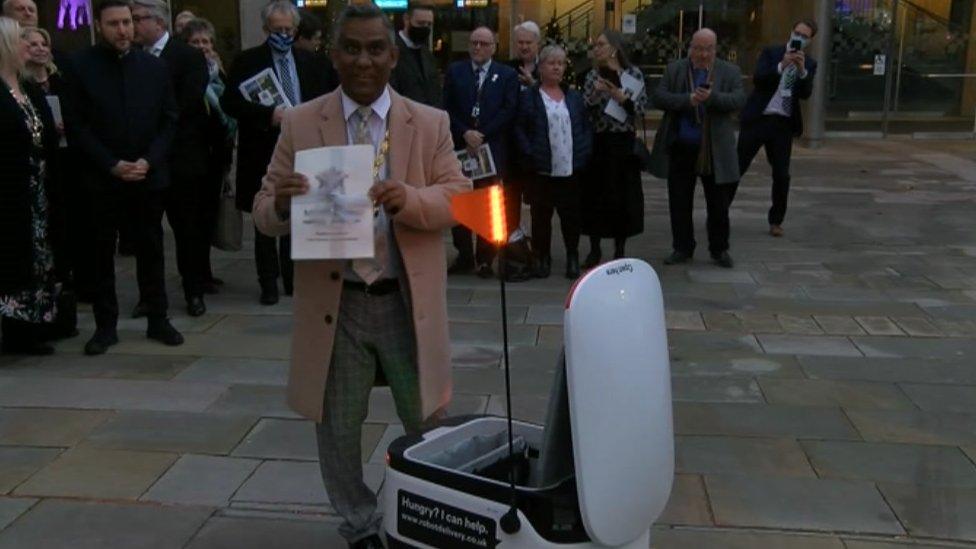Milton Keynes: King Charles III to make city status official
- Published
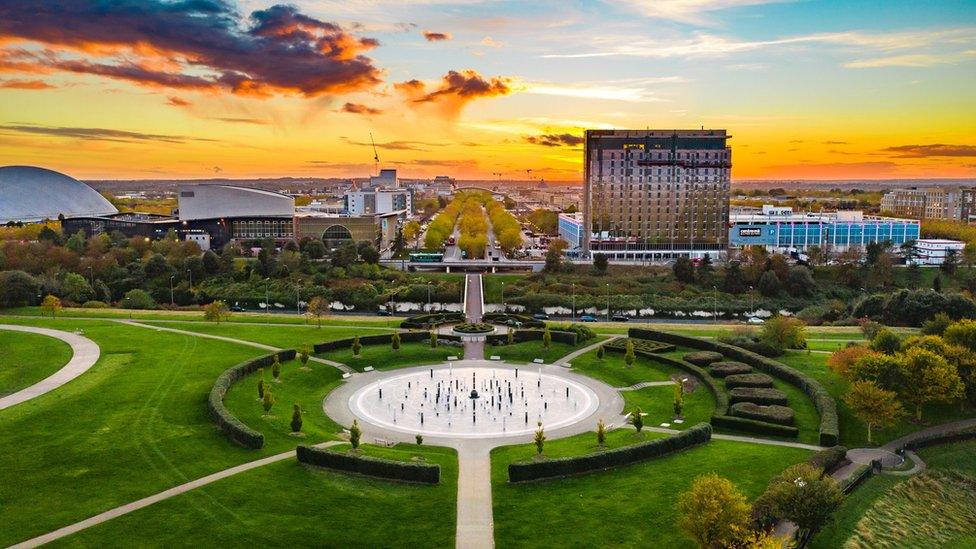
Milton Keynes has 27 conservation areas, 50 scheduled monuments, 1,100 listed buildings and 270 pieces of public art
Granted city status last May as part of the Queen's Platinum Jubilee, Milton Keynes will officially take on the title later at a special ceremony attended by King Charles III. Created as a new town in 1967, Milton Keynes is now home to 280,000 people. What does city status mean for those who live and work there?

'I want to bring my kids up here, it's given me a future'
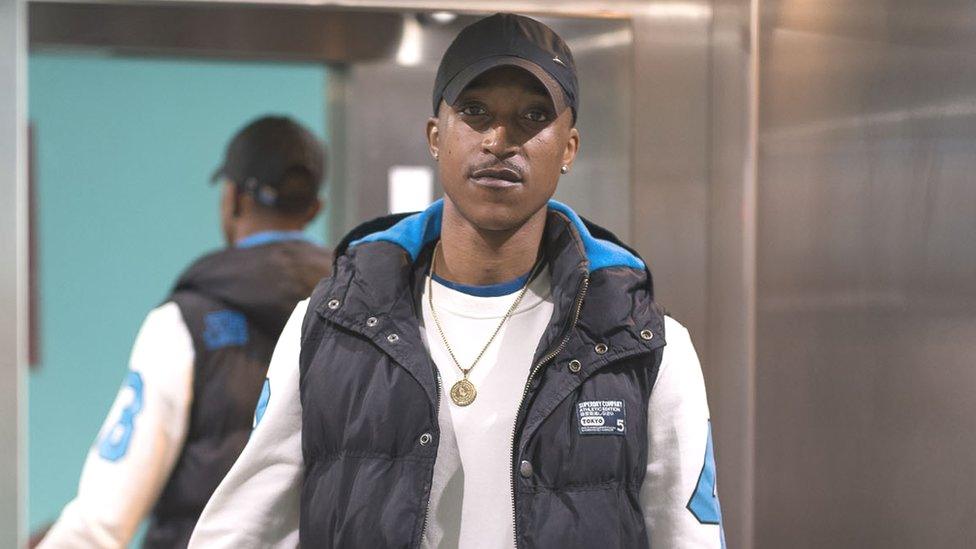
Charlton Takavarasha says it feels good to be able to call Milton Keynes a city instead of a town
"Very calm, relaxed, and safe" are the words Charlton Takavarasha, 27, uses to describe Milton Keynes.
Originally from Zimbabwe, he moved to the city about 10 years ago..
"I came to Milton Keynes with my mother as we wanted a new start in a quiet city."
He is currently being helped by YMCA Milton Keynes, through its Hospital Navigator Scheme, an anti-violence community project that has been running since 2021.
He says being made a city will bring various benefits to Milton Keynes. He believes there will be more "opportunities for economic growth, and it could mean more money spent on youth services".
"It's like a mini London, there's now a lot of tourists interested in the city."
He likes the roundabouts, its Redways, the city's shared routes, which provide safe places to walk and cycle, and the city's greenery, he says.
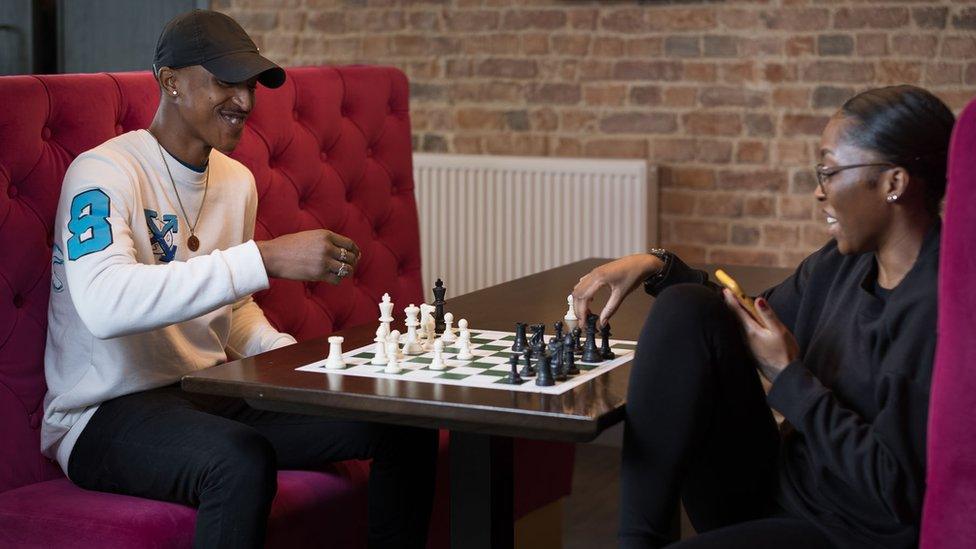
Mr Takavarasha says Milton Keynes is a "supportive community"
"It brings a new vibe and feel for people," he says.
"It makes me feel proud seeing all the buildings being built in the city and around it, I can see the growth.
"There's a lot of jobs around Milton Keynes and lots of activities to do."
He says through the help he receives he's able to do boxing, yoga, use a YMCA music room and go for walks.
"I feel safe, although crime happens, it happens rarely and when it does happen it's a big shock.
"It's a supportive community where I'm hoping to stay.
"I plan to stay here for a while, I want to bring my kids up here, it's given me a future."

'Milton Keynes will absorb into your DNA'
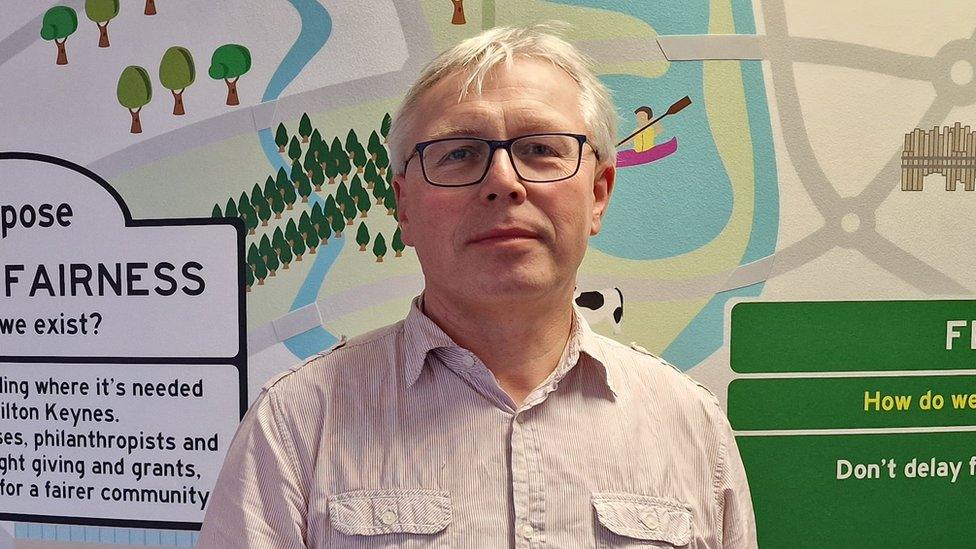
Ian Revell said he learnt how to be a chief executive by working for Milton Keynes based charities
Ian Revell, the chief executive of MK Community Foundation, says: "If you cut me in half, like a stick of rock, you would have Milton Keynes written through me."
He came to the city in 1999 to work for the YMCA.
"It was my absolute choice to be in a new city, having worked in Harlow and lived in North London," he says.
"I liked the new town movement and wanted to come to Milton Keynes, to build a career and bring up children.
"I love Milton Keynes for its greenness, its connectivity, its diversity and how so many communities intertwine.
"We don't have pockets of one community, people integrate and it's a truly multicultural city.
"I think Milton Keynes is like a microcosm of the world and, unless you are a sheep, you have decided to come here."
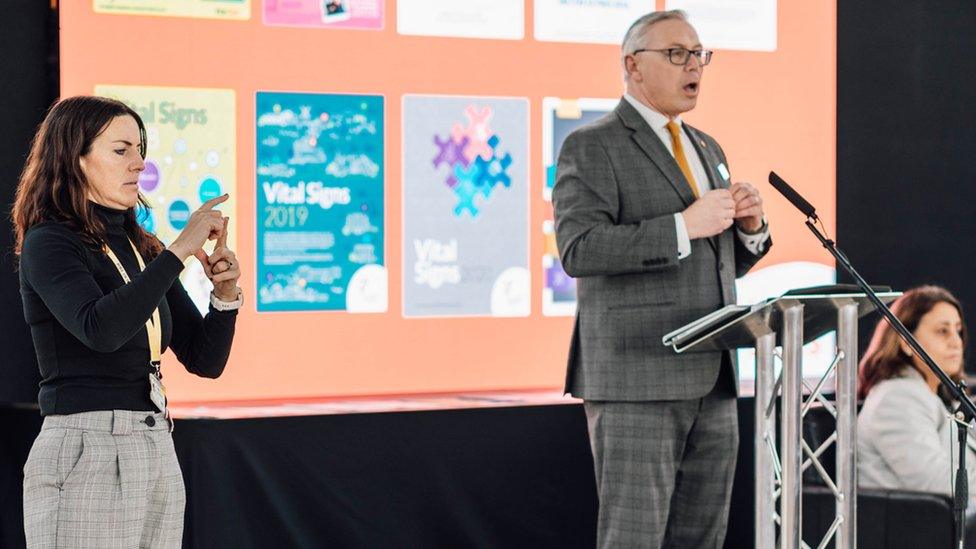
Ian Revell (right) has lived and worked in Milton Keynes for over 20 years
He says it has plenty of history "but people who come here also make the history".
"If you live in Milton Keynes it will absorb into your DNA.
"In the early days the city was so ambitious and so off the scale in ambition and design it's taken a while for us to come of age.
"It's like when you need a new blazer for secondary school and it's too big, it feels like that, it's taken the first 50 years to grow into it.
"Getting city status is just the icing and the cherry on the cake.."

'The community makes it so special'
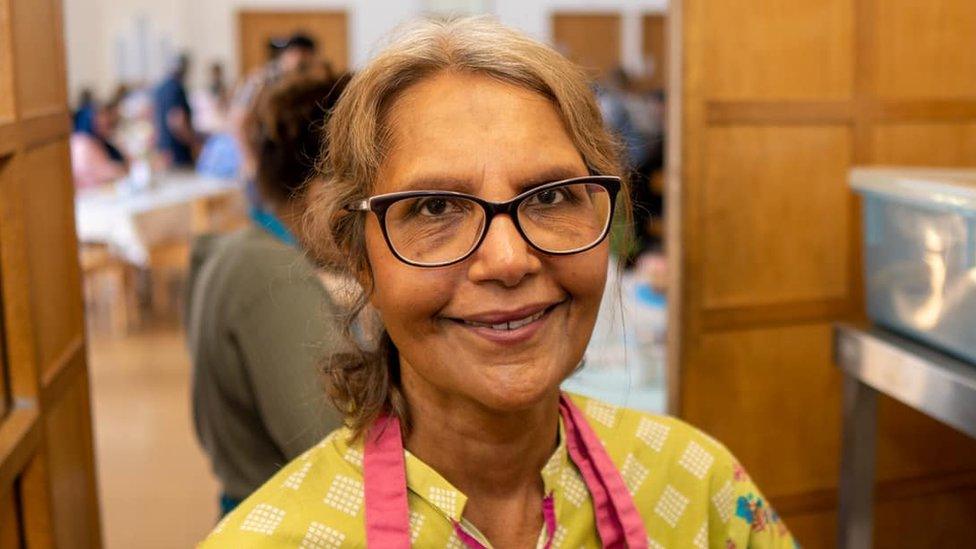
Kurshida Mirza says "when you bring people together over food they lose their barriers"
"We love Milton Keynes", says Kurshida Mirza, founder of Trubys Garden Tea Rooms, a pop up cafe that runs every two months from the Church of Christ the Cornerstone.
The interfaith community cafe aims to build positive relationships between Muslims and the community she says.
She has lived in the city since 1990. Her children were born and raised here and after university, they returned.
"It's always felt like a city, with all the beauty of living in the countryside, as we have a huge amount of green land."
She believes being made a city "will open lots of doors" and feels it has "always been a bit of an anomaly not to be recognised".
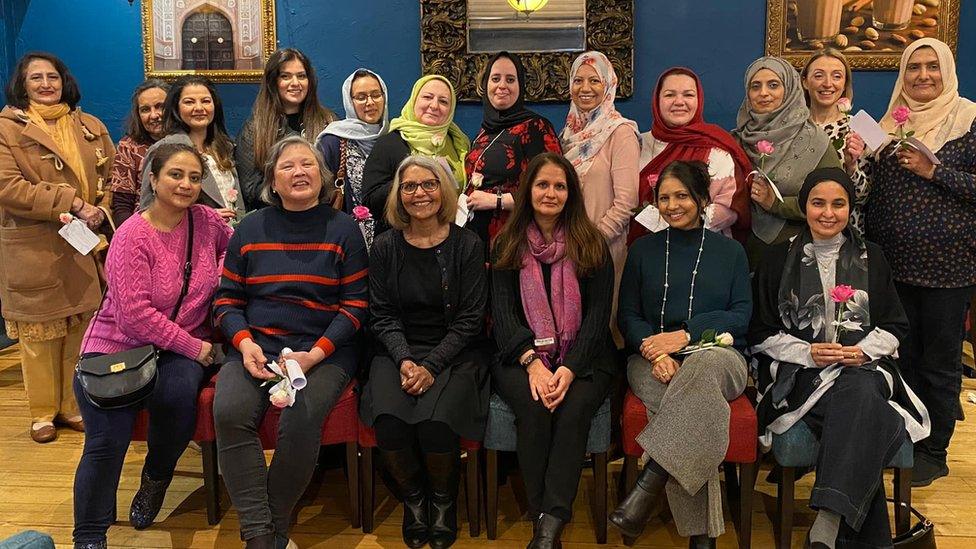
Trubys Garden Tea Room has run since 2014
"The thing that makes it so special is the community, there's something unique about that", she says.
"With other cities and towns you have people who have history, who are born and bred and lived there, but most of us who came to Milton Keynes chose to be here -it's diverse, but we all recognise and feel that experience of coming from somewhere else."
She says the ethos of the cafe is to "bring all our communities and our Muslim community together so we can learn, trust each other and work together".
"Our motto is that there's more that connect us than divides us.
"Being officially made a city will make a huge difference, we will be recognised now," she says.
"It will bring a host of benefits that we will be able to put back into Milton Keynes."

'We're going to be taken more seriously by the big guns'
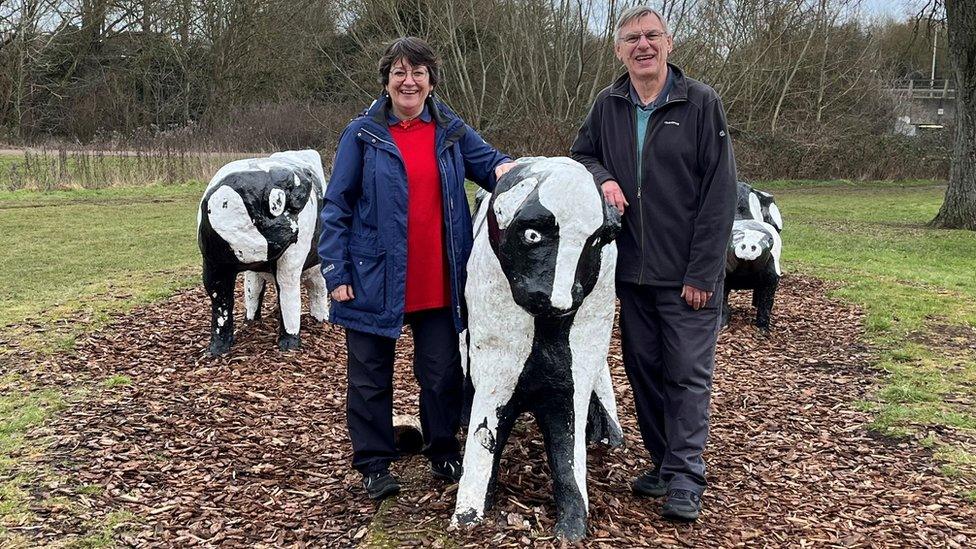
Janet and Steve Nelsey by the concrete cows in Bradwell Abbey
Steve and Janet Nelsey moved to the city 31 years ago from London, to work and raise their children.
Now retired, the pair play an active role within the community, and volunteer for The Parks Trust, Milton Keynes International Festival, their parish council and St Mary's Church, in Shenley Church End.
"It's just wonderful, and about time too", Mrs Nelsey says.
"It's such a big and important centre - how could it not be a city? It's always felt like a city. It's always had a very clear vision."
It has been "exciting living here and watching it grow and develop, that's been the brilliant bit", she says.
When it was classed as a new town it "didn't get the recognition it deserved". "We're going to be taken more serious by the big guns", says Mrs Nelsey.
"We've put on stuff and if we're only a town we're seen a provincial but the city status will give it a boost."
Mr Nelsey has always called it a city "and I think most people in MK have always thought of it as a city, it was always the city centre, never a town centre".
Mrs Nelsey says she is most proud of the "community feeling in the estates, who are always looking out for each other".
"Before I got married, I lived in MK from 1985 to 1990, before we moved back together in 1991, and that was when it was really starting to develop, before the theatre and The Point had been built", Steve says.
"It's developed so much the past 30 to 40 years and that's what I'm most proud of", he adds.

Find BBC News: East of England on Facebook, external, Instagram, external and Twitter, external. If you have a story suggestion email eastofenglandnews@bbc.co.uk, external
Related topics
- Published8 October 2022
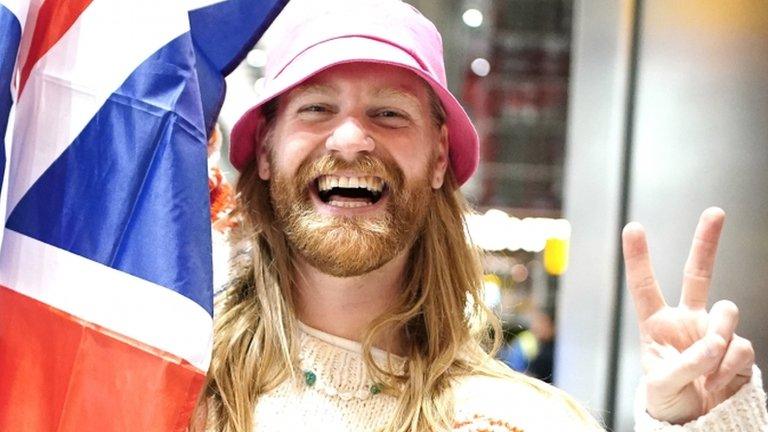
- Published20 May 2022
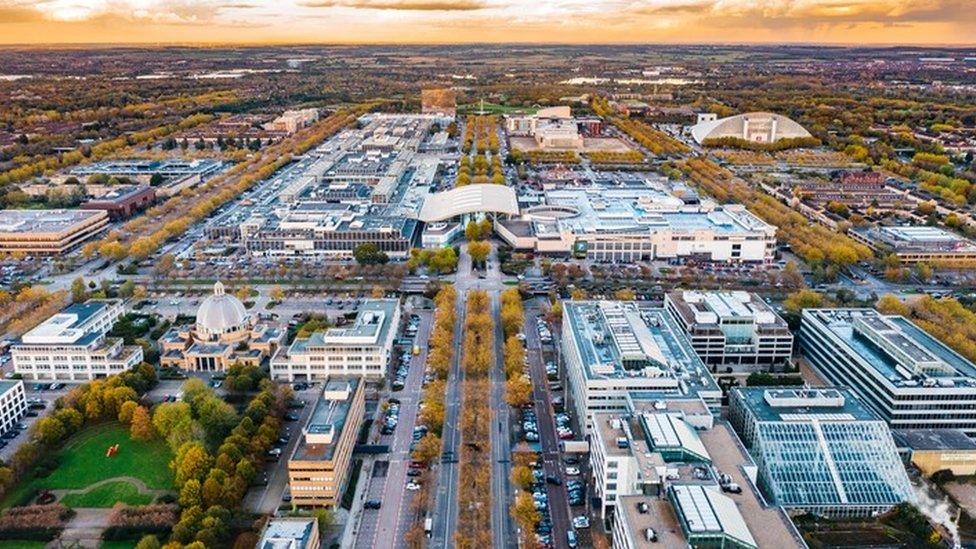
- Published8 December 2021
